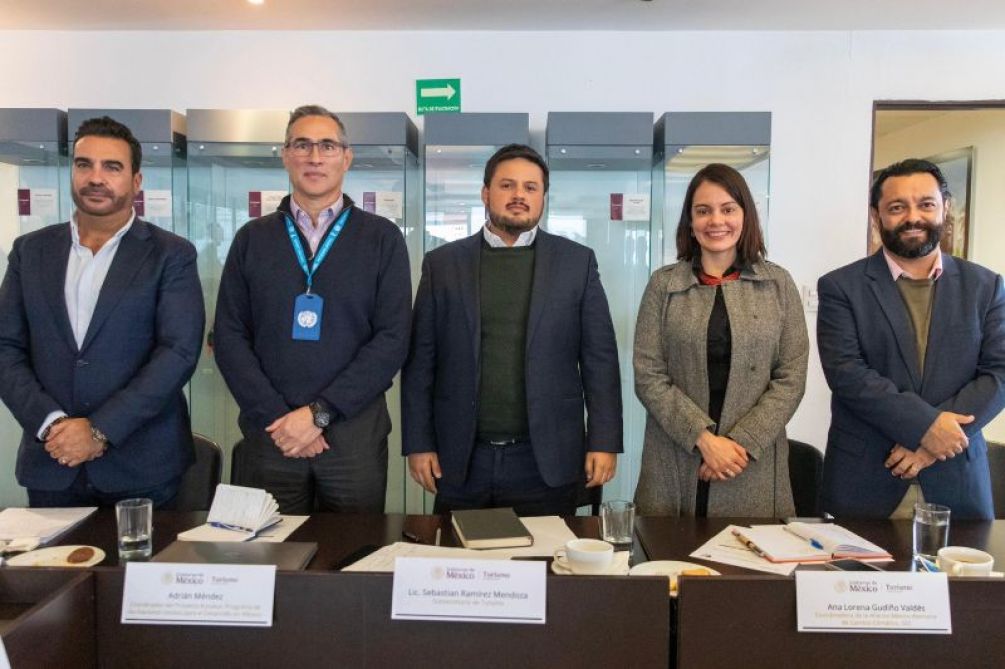Mexico is strengthening its commitment to sustainable and community-based tourism. In an effort to promote a more regenerative and inclusive tourism model, Biosphere Mexico, represented by Fernando Mandri Bellot, is actively involved in defining key strategies to foster responsible tourism while ensuring a positive impact on the environment, biodiversity, and local communities.

As part of efforts to reinforce national policies on sustainable and community-based tourism, Mexico’s Ministry of Tourism (Sectur) organized the 'Sustainable and Community-Based Tourism Workshop', a key gathering attended by representatives from international cooperation agencies such as the United Nations Development Program (UNDP), the Global Environment Facility (GEF), and the German Society for International Cooperation (GIZ).
The event, led by Undersecretary of Tourism Sebastián Ramírez Mendoza on behalf of Secretary of Tourism Josefina Rodríguez Zamora, aimed to strengthen ties between the public sector and international organizations. The goal was to identify joint projects in strategic areas such as tourism in protected natural areas, the impact of climate change, biodiversity, coastal and marine conservation, sustainable and regenerative tourism, and the development of community-based tourism in Mexico.
Among the invited experts, Fernando Mandri Bellot, CEO of Biosphere Mexico, director of INTEGRA Tourism For Good S.A. de C.V., and a member of the Responsible Tourism Institute (ITR), played a prominent role. With over 20 years of experience in tourism quality, marketing, planning, and sustainable tourism development, Mandri Bellot emphasized the importance of consolidating responsible tourism models in Mexico, aligning with the United Nations Sustainable Development Goals (SDGs).
In his speech, he underscored the need to adopt strategies that balance economic growth with environmental preservation and the well-being of local communities. He highlighted the crucial role of sustainability certifications, such as Biosphere, in ensuring quality and responsibility standards in the tourism sector.
Undersecretary of Tourism Sebastián Ramírez Mendoza reaffirmed that community-based tourism has been a priority for the current administration due to its positive impact on job creation and social well-being. A notable example is the Maya Train initiative, which aims to diversify the tourism offerings in southeastern Mexico, allowing Indigenous communities to participate in and benefit from tourism development in their territories.
Additionally, the creation of a National Sustainable Tourism Agreement was proposed, bringing together all sector stakeholders to define priority sustainability commitments with responsibilities differentiated by role.
During the event, Vicente Ferreyra Acosta, General Director of Sustentur, stressed the importance of establishing Mexico as an international benchmark in sustainable tourism. He advocated for actions that not only preserve the country's natural and cultural wealth but also contribute to ecosystem regeneration and the empowerment of local communities.
According to the 2024 Travel & Tourism Development Index (WEF), Mexico ranks first globally in natural resources and fifth in cultural resources, reinforcing the need for sustainable strategies to ensure the destination's long-term competitiveness.
The event also featured the participation of other sustainability experts, such as Adrián Méndez, coordinator of the UNDP Kuxatur Project in Mexico, and Ana Lorena Gudiño Valdés, coordinator of the Mexico-Germany Climate Change Alliance at GIZ.
The workshop reflects Mexico’s growing commitment to building a more sustainable and inclusive tourism model—one that not only generates economic benefits but also protects biodiversity, promotes social equity, and preserves the cultural identity of local communities.
At Biosphere, we reaffirm our commitment to transforming tourism into a responsible and sustainable model. Through the Biosphere certification, we continue to support businesses and tourist destinations on their path to sustainability, fostering a positive impact on society and the environment.
The future of tourism is sustainable, and Mexico is taking firm steps toward leading this transformation.